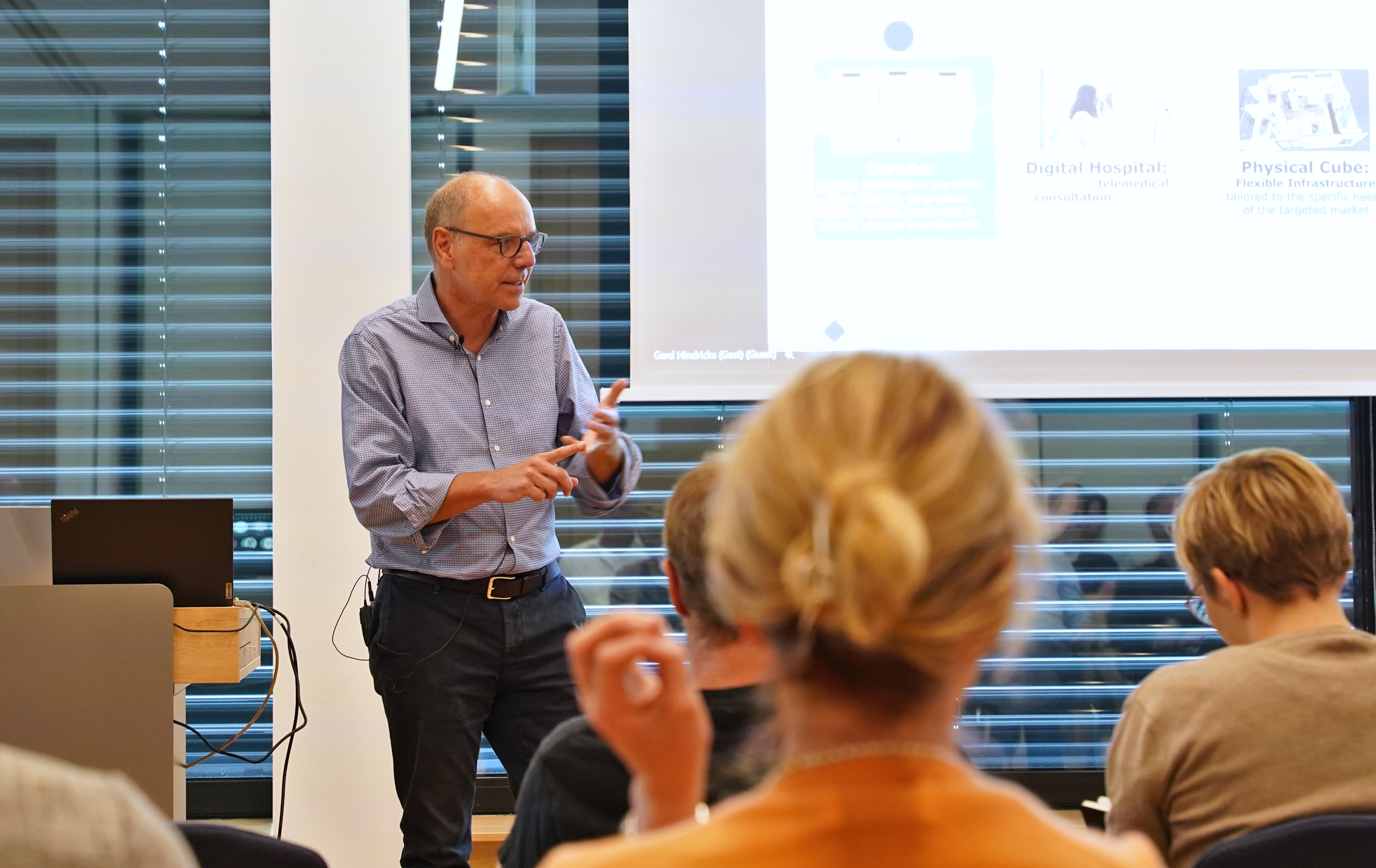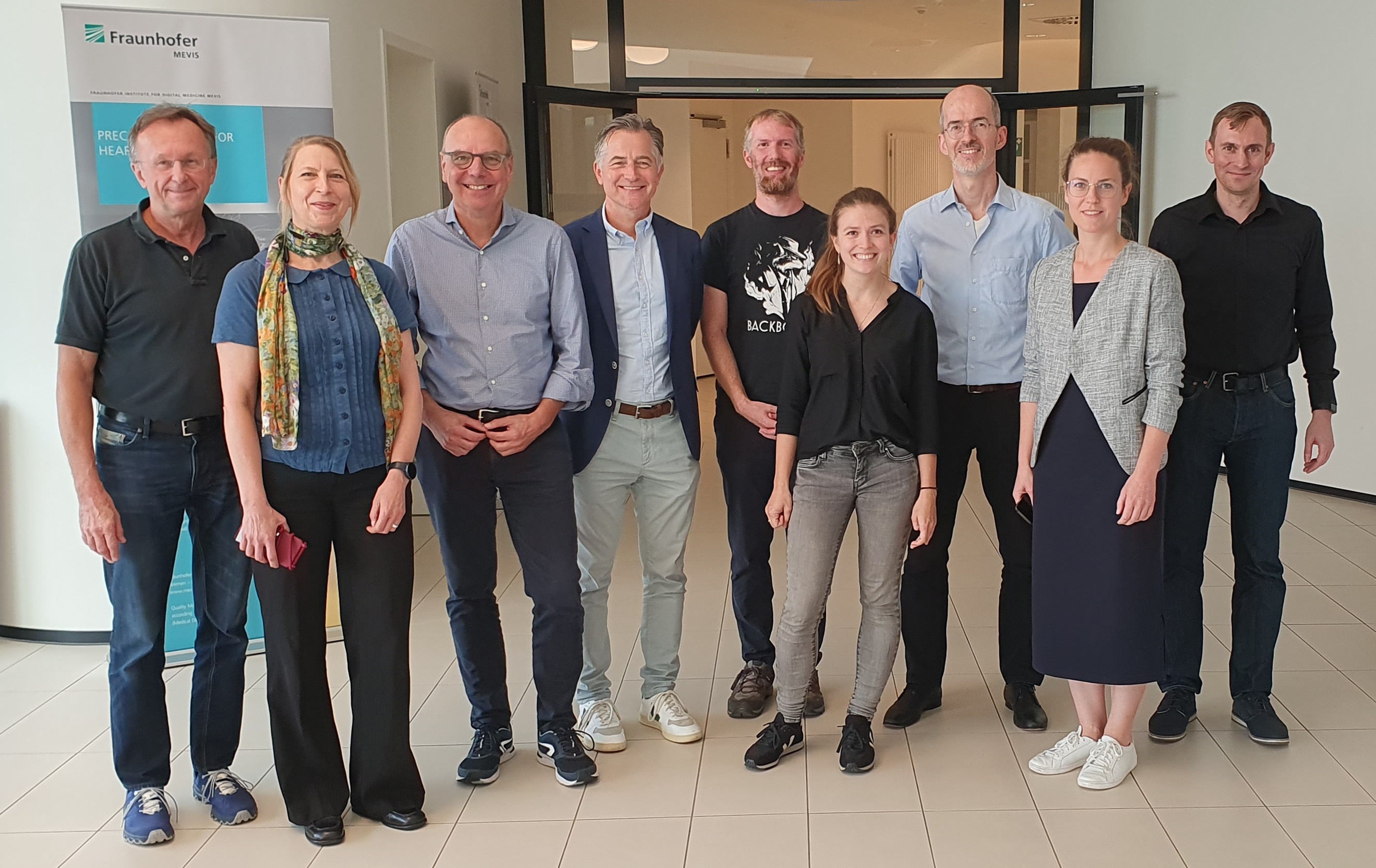Institute News


In an engaging lecture by the cardio expert and professor Gerhard Hindricks on August 30th, approximately 70 attendees simultaneously gained insights into pioneering approaches in cardiac medicine and into the possible routes toward securing healthcare in remote or underserved regions. Because those who deal with cardiovascular diseases cannot avoid taking a global epidemiological perspective: Diseases of the heart and vessels are the leading cause of death globally and affect various geographical locations, age groups, and socioeconomic structures.
During the talk, it quickly became clear that the digitalization of medicine is the driving force here and opening up entirely new possibilities, e.g. for reliably detecting heart diseases with non-invasive methods. Prof. Hindricks exemplified this with a cited study in which AI was able to detect the presence of heart failure solely based on altered speech signals. The cardiologist is convinced: “Digital applications are the only way to make medicine more equitable.” Access to medical care plays a central role in preventing, monitoring, and treating various diseases. The project “Care for you to be” (CUBE), in which Prof. Hindricks took an active role during his time as Medical Director at the Leipzig Heart Center, aims at providing healthcare access to more people in the world by deploying flexible, adaptable telemedical walk-in units.
In further program items during Prof. Hindricks’ visit, scientists from Fraunhofer MEVIS working on topics related to the heart demonstrated their products such as a software tool developed in the MINIMAKI project led by Prof. Anja Hennemuth. This AI-assisted system is designed to facilitate the planning and execution of heart valve surgeries, including the interpretation of complex data sets. The heart and its diseases are a vital part of the Fraunhofer MEVIS portfolio and technologies developed in this context address various stages of the patient journey, from prevention to diagnosis to treatment.
The exchange with Prof. Hindricks provided inspiring food for thought on cardiovascular topics and uncovered potential areas of cooperation between Fraunhofer MEVIS and the clinic.
About our visitor: Prof. Hindricks headed the Heart Center in Leipzig until the beginning of this year and has been Head of Rhythmology at the German Heart Center of Charité as well as Chief Integration Officer of the German Heart Center Berlin since March 2023. His main responsibilities in Berlin are the development of excellence in electrophysiology at Charité hospitals, the integration of the Charité hospitals to the German Heart Centre (as Chief Integration Officer) and to support the German Heart Centre of the Charité in fields of strategic development. Prof. Hindricks’ main areas of scientific interest include arrhythmias and electrophysiology, particularly interventional treatment of cardiac arrhythmias, new innovative technologies and device therapies. Currently, he is also principal investigator of the European Commission sponsored PROFID project, one of the largest global activities on the prevention of sudden cardiac death, and chair of the Digital Health Committee of the European Society of Cardiology (ESC).
 Fraunhofer Institute for Digital Medicine MEVIS
Fraunhofer Institute for Digital Medicine MEVIS